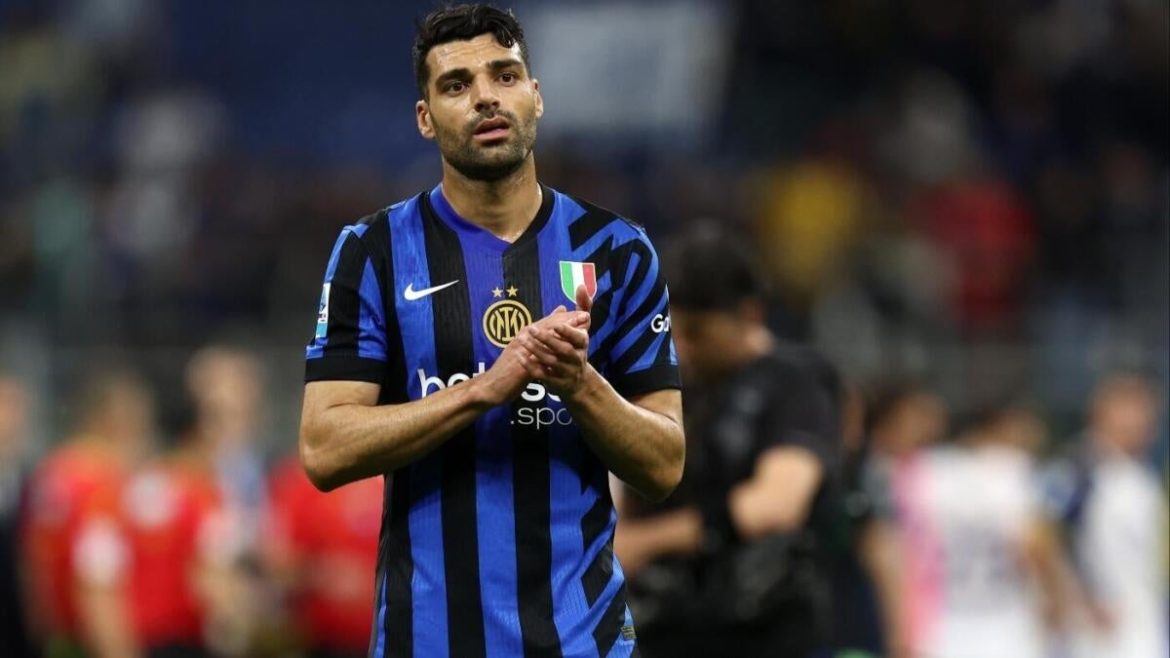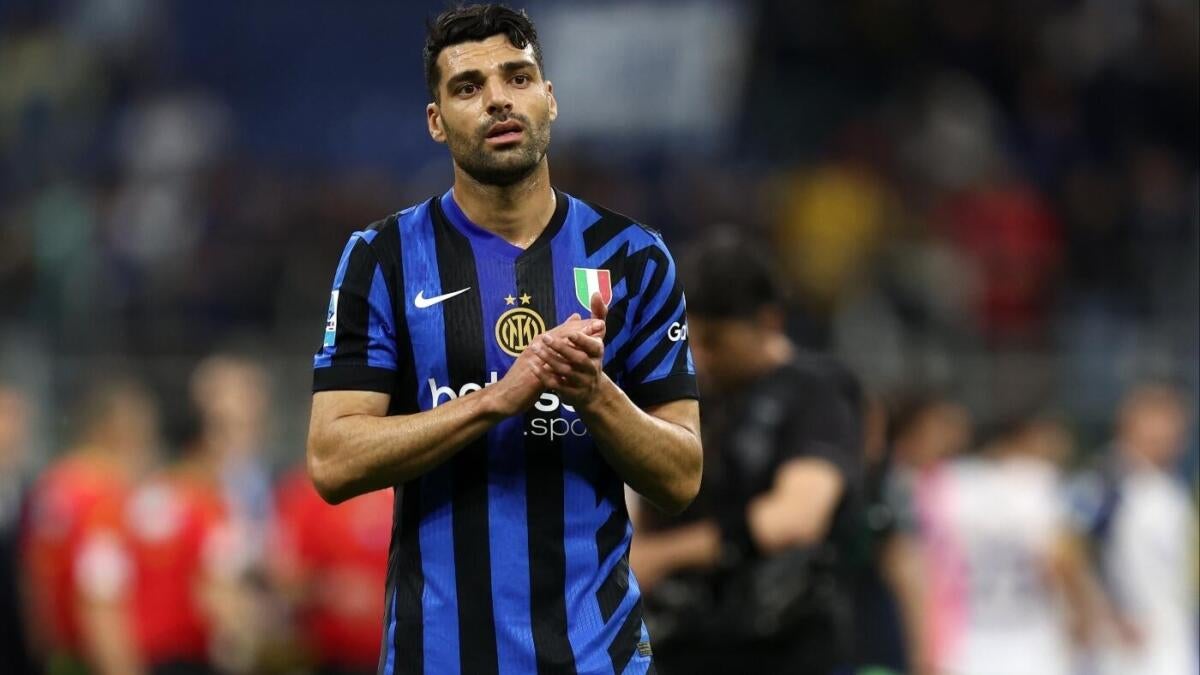The Stranded Striker: Mehdi Taremi’s Unforeseen Absence from Inter Milan’s Club World Cup Campaign
Inter Milan’s plans have been abruptly disrupted by geopolitical tensions in the Middle East, as their star forward Mehdi Taremi finds himself stranded in Tehran, unable to travel to the United States for the FIFA Club World Cup. This unexpected development not only affects the team’s dynamics but also underlines the complex interplay between international sports and global conflicts.
The Unfolding Scenario: Conflict Grounds Travel Plans
Mehdi Taremi, the Iranian international and key attacker for Inter Milan, had returned to his home country to participate in the 2026 World Cup qualifiers. However, escalating conflict between Iran and Israel has led to the closure of Iranian airspace following an exchange of military strikes, effectively grounding all flights out of Iran. This situation leaves Taremi trapped in Tehran, unable to rejoin his club for the tournament in Los Angeles.
The closure of Iranian airports is a direct consequence of Israeli airstrikes and Iran’s retaliatory military actions, marking a significant escalation in regional hostilities. As a result, Taremi missed his scheduled flight on Saturday and is now expected to miss not only Inter’s opening match against Monterrey but the entire group stage of the Club World Cup. Italian media have reported that the 32-year-old striker will not feature in subsequent matches, a major blow to the club’s competitive prospects.
The Impact on Inter Milan
For Inter Milan, this development is both a logistical challenge and a sporting setback. Taremi has been pivotal for the Nerazzurri, bringing goal-scoring threat and creative play to their frontline. His absence means the team must adjust their attacking formations and strategies without one of their experienced forwards.
The club is following Taremi’s situation closely, maintaining constant contact with him amid concerns for his safety and wellbeing. Efforts are reportedly underway to find alternative ways to ensure the player’s eventual arrival at training camp in the U.S., though the ongoing nature of the regional conflict dims those prospects in the short term.
Taremi’s Position: Between Duty and Uncertainty
Taremi’s predicament highlights the difficult balance athletes sometimes face between national team obligations and club commitments. Having traveled to Iran for World Cup qualifiers reflects his dedication to representing his country, yet the unexpected escalation in conflict has now trapped him at home.
The forward has acknowledged his commitment to Inter Milan, affirming he maintains a contract with the club and looks forward to contributing when circumstances allow. Meanwhile, fans and teammates alike hope for a swift resolution to the political turmoil that has unexpectedly sidelined one of their key athletes.
Broader Implications: Sports Amid Geopolitical Turmoil
The incident with Mehdi Taremi is a vivid example of the wider consequences that geopolitical conflicts can have on international sports events. Athletes’ careers and team campaigns can be profoundly affected by events beyond the pitch. The intersection of global politics with sports creates scenarios where travel restrictions, safety concerns, and diplomatic tensions alter the competitive landscape.
For Inter Milan, a club eager to compete at the highest levels, losing a forward of Taremi’s caliber due to geopolitical strife underscores the vulnerability of modern sports to world affairs. Moreover, it provokes questions about contingency planning and support mechanisms for players caught in conflict zones.
Conclusion: Waiting for the Striker’s Return in Uncertain Times
Mehdi Taremi’s forced absence from the Club World Cup serves as a somber reminder of how athletes can be caught in the crossfire of international conflict. His inability to join Inter Milan’s squad in the United States is a direct result of the volatile situation between Iran and Israel, illustrating how fragile athletic participation can be in troubled regions.
Inter Milan must now navigate their Club World Cup campaign without their Iranian striker, adapting on the field while hoping that peace and the reopening of airspace will soon allow Taremi to rejoin his teammates. His situation also calls for a broader awareness and responsive action within the football community regarding the impacts of geopolitical crises on players’ careers and wellbeing.
This chapter in sports diplomacy remains open-ended, with the hope that stability and safety emerge swiftly, enabling Mehdi Taremi to once again represent his club on the global stage. Until then, his story stands as a poignant intersection of football talent and world politics, resonating far beyond the boundaries of sport.





